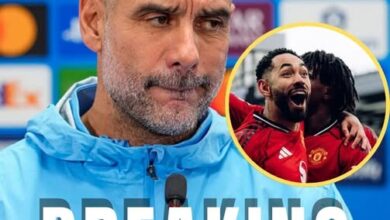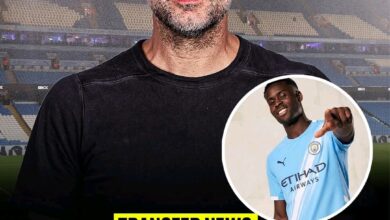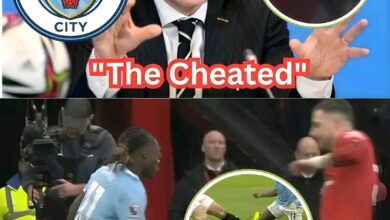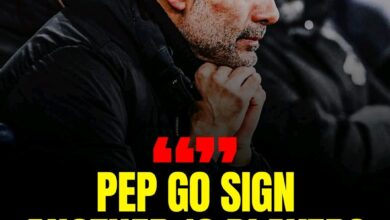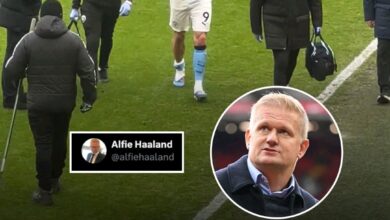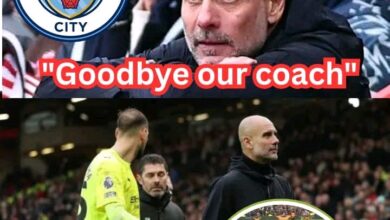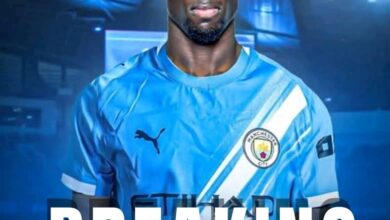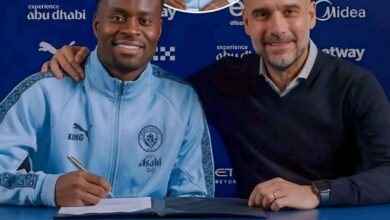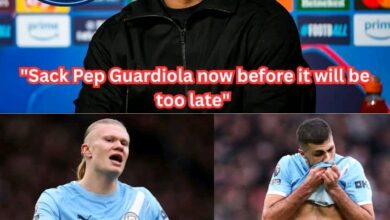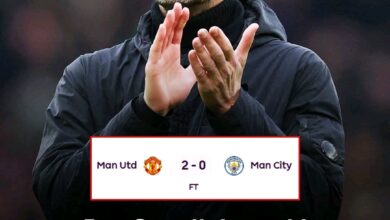Lionel Messi’s toughest opponent is a Manchester City academy graduate you may not have heard much about
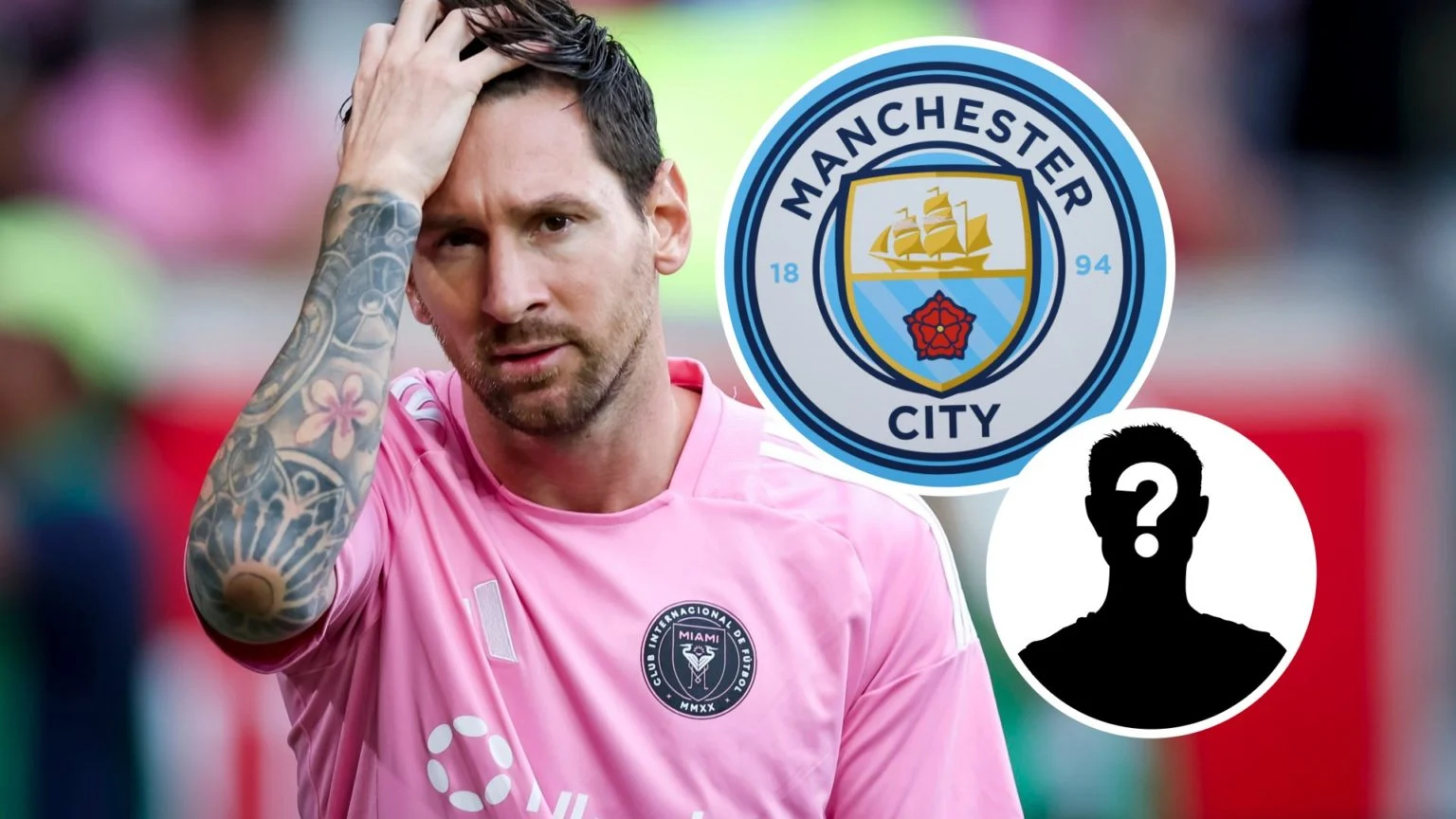
In the pantheon of football’s greatest achievements, few accolades carry more weight than earning the respect of Lionel Messi. The Argentine maestro, whose career statistics read like fiction—768 goals and 365 assists in 943 club appearances, plus 112 goals in 193 international outings—has faced virtually every type of defender imaginable. Yet among all the world-class center-backs, seasoned full-backs, and defensive midfielders who have attempted to contain his genius, one name stands out in Messi’s memory: Pablo Maffeo, a relatively unknown Manchester City academy graduate who was sold for a modest £8.8 million.
The Making of an Unlikely Hero
Pablo Maffeo’s journey to becoming Messi’s most challenging opponent began far from the spotlight that typically illuminates football’s biggest stories. Born in Palma de Mallorca, Spain, Maffeo represented the archetypal modern football academy product—technically proficient, tactically aware, and possessing the kind of versatility that makes coaches take notice. His path led him to Manchester City’s renowned academy system, where he would develop under the guidance of one of Europe’s most sophisticated youth development programs.
The City Football Academy, established as part of Sheikh Mansour’s ambitious project to transform Manchester City into a global football powerhouse, has become synonymous with producing technically gifted players who understand the nuances of possession-based football. For Maffeo, this environment provided the perfect crucible in which to forge his defensive instincts and tactical intelligence. The academy’s emphasis on playing out from the back, maintaining compact defensive shapes, and understanding positional play would prove invaluable when he eventually faced the ultimate test of his abilities.
However, like many academy graduates at elite clubs, Maffeo found his pathway to the first team blocked by established stars and expensive signings. Manchester City’s transformation into a Premier League and European powerhouse meant that opportunities for young players became increasingly scarce. The club’s policy of loaning promising youngsters to gain experience elsewhere became Maffeo’s route to first-team football, leading him to Girona—a club that would become the stage for one of football’s most remarkable David versus Goliath stories.
The September Evening That Changed Everything
September 23, 2017, was supposed to be another routine La Liga fixture. Barcelona, riding high under Ernesto Valverde’s management, traveled to face newly-promoted Girona at the Estadi Montilivi. For most observers, the outcome seemed predetermined. Barcelona boasted a front three of Messi, Luis Suárez, and Neymar’s replacement, while Girona were still adjusting to life in Spain’s top division after their historic promotion.
Yet football’s beauty lies in its unpredictability, and on this particular evening, a 20-year-old defender on loan from Manchester City was about to etch his name into football folklore. Pablo Maffeo, deployed in an unfamiliar central midfield position due to tactical requirements, approached the match with the kind of fearlessness that often characterizes young players who have nothing to lose and everything to prove.
The tactical setup was crucial to understanding what unfolded. Girona’s coach, Pablo Machín, had devised a defensive strategy specifically designed to neutralize Barcelona’s attacking threats. This required players who could adapt to multiple roles within the system, pressing high when Barcelona had possession while maintaining defensive discipline when the Catalan giants threatened to break through their lines. Maffeo’s role was particularly demanding—he was asked to track Messi’s movements, disrupt Barcelona’s passing rhythm, and contribute to the team’s offensive transitions when opportunities arose.
The Art of Defending Against Genius
What made Maffeo’s performance so remarkable was not just his ability to contain Messi, but the manner in which he did it. Rather than resorting to the cynical fouling that many defenders employ when facing superior opponents, Maffeo relied on intelligent positioning, precise timing, and an understanding of space that belied his years. His approach exemplified the modern evolution of defending—using intelligence and anticipation rather than brute force to neutralize threats.
The statistics from that evening tell only part of the story. Maffeo completed 100% of his passes, registered two clearances, and maintained his positional discipline throughout the 90 minutes. More impressively, he limited Messi to just one shot on target—a remarkable achievement considering the Argentine’s typical output against La Liga opposition. These numbers, however, fail to capture the psychological battle that unfolded between the young defender and the established maestro.
Messi, accustomed to finding pockets of space and time to weave his magic, found himself constantly shadowed by an opponent who seemed to anticipate his every move. Maffeo’s pressing was perfectly timed, arriving just as Messi received the ball but avoiding the kind of aggressive challenges that might result in fouls in dangerous areas. His positional awareness meant that even when Messi managed to evade the initial press, the young defender was quickly able to recover and apply pressure again.
The mental aspect of Maffeo’s performance was equally impressive. Facing arguably the greatest player in football history could overwhelm many young defenders, leading to rash decisions or hesitant defending. Instead, Maffeo approached the challenge with a composure that suggested a player far beyond his years. He understood that defending against Messi required not just physical and technical abilities, but also the mental fortitude to remain focused and disciplined for the entire match.
The Lasting Impact of One Performance
While Barcelona ultimately won the match 3-0, with goals from Gerard Deulofeu, Gerard Piqué, and Paulinho securing the victory, the result was overshadowed by individual battles that had unfolded on the pitch. In post-match analysis, football commentators and tactical experts noted how Maffeo’s performance had disrupted Barcelona’s usual rhythm and forced them to find alternative routes to goal.
For Maffeo himself, the immediate aftermath of the match was bittersweet. Despite his outstanding individual display, his team had suffered defeat, and the young defender was acutely aware that moral victories mean little in professional football. However, he had proven to himself and to observers that he belonged at the highest level of the game. The confidence gained from successfully dealing with Messi’s threats would serve him well throughout the remainder of his career.
The match also highlighted the tactical sophistication that had become characteristic of Spanish football. Girona’s ability to implement a coherent defensive strategy against one of the world’s best teams, while giving a young player the freedom to express himself in a crucial role, spoke to the quality of coaching and tactical understanding that permeated La Liga at all levels.
Messi’s Unprecedented Recognition
The true measure of Maffeo’s achievement only became clear three years later, when Messi was interviewed by DAZN and asked about the most challenging defenders he had faced throughout his illustrious career. His response surprised many in the football world: “Pablo Maffeo, when he was at Girona, was the hardest defender I’ve ever faced. I’ve never been one to complain. I believe that physical contact is part of football.”
This recognition from Messi carried extraordinary weight. Throughout his career, the Argentine had faced some of the most accomplished defenders in world football—from Paolo Maldini’s elegance to Sergio Ramos’s aggression, from Virgil van Dijk’s athleticism to Giorgio Chiellini’s cunning. Yet it was a young Spaniard, playing out of position for a newly-promoted team, who had left the most lasting impression on football’s greatest talent.
The significance of Messi’s statement extends beyond mere personal recognition. For a player of his stature to single out a relatively unknown defender spoke to the genuine difficulty he had experienced that September evening in Girona. It also highlighted Messi’s honesty and respect for opponents who had tested him in meaningful ways, regardless of their profile or reputation.
The Business of Modern Football
Maffeo’s response to Messi’s recognition was characteristically humble: “It’s the best recognition from the best player in history. We lost that game, but the experience will always mark my life.” This reaction demonstrated the kind of character that had enabled him to perform so effectively against such illustrious opposition—a combination of confidence in his abilities and respect for the game and its greatest practitioners.
However, Maffeo’s remarkable performance was not enough to convince Manchester City to integrate him into their first-team plans. In May 2018, just eight months after his masterclass against Messi, the club sold him to VfB Stuttgart for £8.8 million. This decision reflected the harsh realities of modern football at elite clubs, where immediate impact and established reputation often outweigh potential and single outstanding performances.
The sale price itself tells a story about football’s economics. In an era where transfer fees regularly exceed £50 million for unproven talents, £8.8 million represented a relatively modest sum for a player who had demonstrated his ability to compete with the world’s best. This discrepancy highlighted how single performances, regardless of their quality, struggle to overcome the broader considerations that influence transfer decisions at top clubs.
Manchester City’s decision was not necessarily wrong from a business perspective. The club’s priorities focused on immediate success in the Premier League and Champions League, requiring players who could contribute immediately rather than those who might develop into valuable assets over time. Maffeo’s loan spell, while individually successful, had not yet translated into the kind of consistent performances that would justify displacing established first-team players.
The Broader Implications
Maffeo’s story illuminates several important aspects of modern football that extend beyond individual achievements. His journey exemplifies the challenges faced by academy graduates at elite clubs, where the pressure for immediate success often prevents young talents from receiving adequate opportunities to prove themselves at the highest level.
The tactical sophistication he displayed against Messi also highlighted the evolution of defending in contemporary football. Rather than relying on traditional defensive attributes like height, strength, or aggression, modern defenders must possess technical skills, tactical intelligence, and the ability to adapt to various roles within different systems. Maffeo’s versatility—playing naturally as a right-back but excelling in central midfield against Barcelona—represented the kind of adaptability that coaches increasingly value.
His performance also demonstrated the importance of mental preparation and confidence in high-pressure situations. Many young players might have been overwhelmed by the prospect of marking Messi, leading to either overly cautious or recklessly aggressive defending. Maffeo’s ability to maintain his composure and execute his defensive responsibilities effectively showed a maturity that suggested a bright future in professional football.
Legacy and Lessons
The story of Pablo Maffeo’s encounter with Lionel Messi serves as a reminder that football’s greatest moments often emerge from unexpected sources. While the sport’s headlines are dominated by multimillion-pound transfers and superstar performances, sometimes the most memorable stories involve unknown players rising to extraordinary occasions.
For young defenders around the world, Maffeo’s performance provides a template for how to approach seemingly impossible challenges. His combination of tactical intelligence, technical precision, and mental fortitude offers a blueprint that transcends individual ability levels. The lesson is not that every young defender can neutralize Messi, but that proper preparation, tactical understanding, and unwavering focus can enable players to perform beyond their perceived limitations.
The recognition from Messi himself adds another dimension to this story’s significance. In an era where football can sometimes seem driven purely by commercial considerations, the mutual respect between competitors represents something pure about the sport’s essence. Messi’s acknowledgment of Maffeo’s quality, despite the vast difference in their profiles and achievements, exemplifies the kind of sportsmanship that elevates football beyond mere entertainment.
Pablo Maffeo may not have become the household name that his performance against Messi might have suggested, but his story remains a powerful reminder that greatness in football can manifest in many forms. Sometimes, the most lasting impact comes not from scoring spectacular goals or winning prestigious trophies, but from earning the respect of football’s greatest practitioners through dedication, intelligence, and an unwavering commitment to excellence. In the end, that September evening in Girona proved that even legends can be challenged by those brave enough to believe in themselves.






